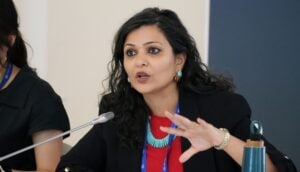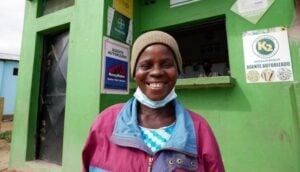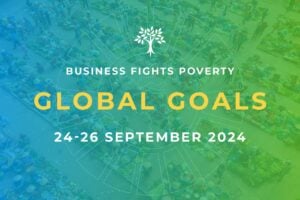Africa has a massive deficit in infrastructure, one that is holding back the social and economic growth in every country on the continent. The World Bank estimates that if African countries could catch up with South Korea’s stock of infrastructure economic growth could be increased by 2.6 percentage points, in many of the least developed countries this could be even more. The cost of achieving this is estimated at $75 billion a year, $35 billion more than is currently being invested.
Why do governments find it difficult to fill this gap? The ‘Africa Rising’ narrative has changed the discourse on business in Africa, but all too often businesses are left navigating outdated infrastructure in their supply chains rather than directly dealing with them. What can be done to channel outside investment into big-impact development projects?
Obama’s ‘Power Africa’ initiative has led a new direction of interest in Africa from Western nations; one that prioritises the positive externalities of investment as a catalyst for social change. The UK similarly is promoting High Level Prosperity Partnerships, a way of interlinking aid and trade to develop certain local markets, create jobs and improve tax revenues. These are positive steps, but there is room for improvement.
Energy generation, transport infrastructure, telecoms: these are all areas in which have fundamentally positive impacts on economies and every-day lives but take years, if not decades to make returns on investment. Helping governments attract the sort of investors who want to be involved in long-term, high capex projects is critical for long term economic success and social development.
Projects such as the East African Exchange in Rwanda, Rift Valley Railway in Kenya, Kusile Power Station in South Africa and the Ghana Natural Gas Project are increasing access to markets, reducing operating costs and helping create the long term conditions for economic growth. Projects such as the Inga Dam in Congo, the Grand Renaissance Dam in Ethiopia, Bagamoyo Port in Tanzania and the Simandou Mine in Guinea have the power to transform not just countries, but whole regions.
Good project ideas aren’t enough; institutional investors – those who have the longest term outlook – weigh up investment options from across the world and these are the organisations that Africa needs. African governments need to present strategic projects with detail and clear purpose. Vague lists of potential projects with little to no detail does nothing to prick the interest of an investor who is weighing up options in Sao Paolo, Hanoi and Baku alongside Kampala, Accra or Nairobi. To make a project bankable there needs to be significant investment in due diligence, feasibility studies, clear political support and a predictable, and fair, regulatory environment.
The Global African Investment Summit, to be held in London, October 20-21, has invited African governments to bring these bankable projects to London, the world’s financial heart. The narrative on Africa has changed fundamentally in the last decade, no longer do conferences need to persuade people on the opportunity of doing business, and no longer is foreign investment or profit making seen as dirty ideas on the continent. We are bringing together the world’s best financiers, investors and fund managers to meet with African leaders, ministers and CEOs of state owned enterprises. Importantly though, these governments are bringing their best bankable investment opportunities to present and discuss with those individuals and organisations who can bring the money needed to take projects to the next stages.
The international community can do more to develop the pipeline of investable opportunities. Development financing institutions have a good track record in this area but their activities should be a compliment to private investors rather than risk squeezing them out. Helping governments study, prioritise and communicate the opportunities in their economies is one area that development aid should be spent to help catalyse long term investment.
For more on The Global African Investment Summit please see www.tgais.com, follow @african_invest or search for our LinkedIn group.









